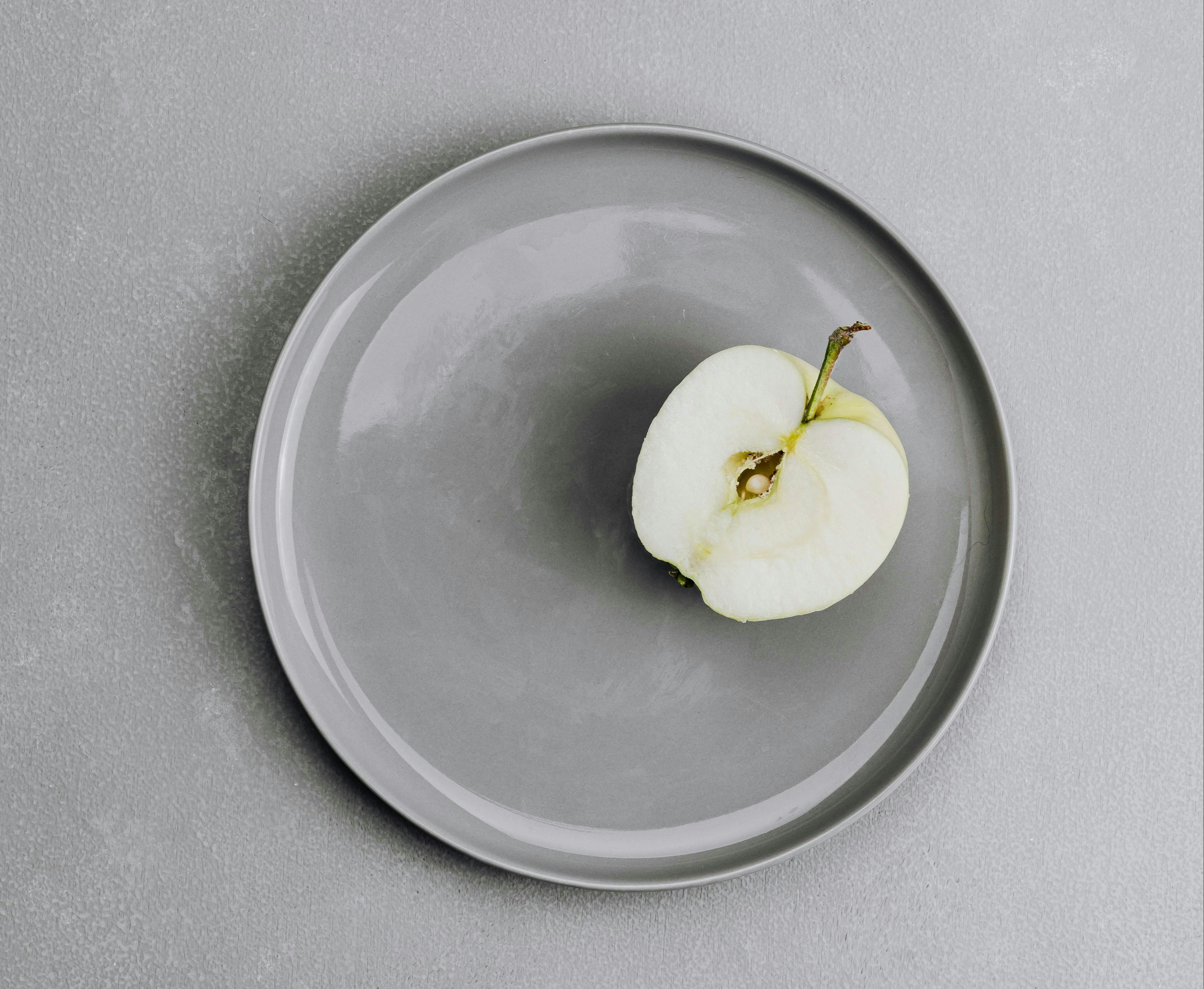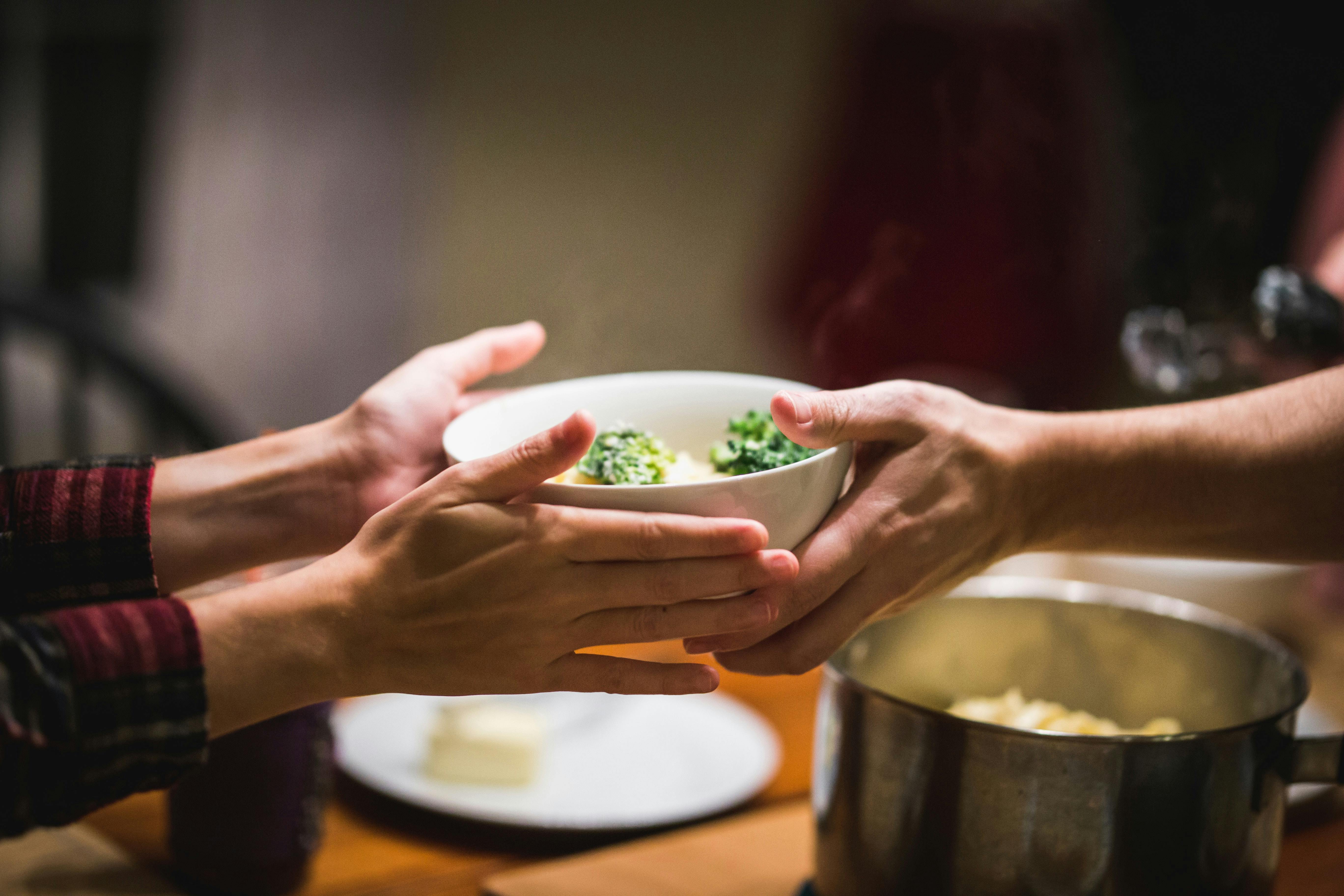I’m learning to have a better relationship with food.
I remember a time years ago when my stomach moaned. I was starving. But I didn’t want to eat.
In fact, I was dreading lunchtime. I sat in my freshman health class when those steamy cafeteria scents wafted down the hallway.
I was already anxious about what I would eat—specifically, what I wouldn’t eat for lunch. I worried how the food would bloat my stomach. I worried about gaining weight. I feared what people would think if I ate (or didn’t eat) certain things. I mentally calculated every bite that would pass my lips.
I didn’t recognize it then, but that began my long journey of disordered eating.

In the two decades that followed, my relationship with food swung like extremes on a pendulum—famines and feasts, binges and bulimia, gluttony and guilt. I restricted food when I felt out of control with other aspects of my life and gorged when I needed comfort.
Rarely was my eating without drama. It was always…complicated.
Most days, I ate as little as possible during mealtimes, strictly avoiding anything “unhealthy” and fearing anything that wasn’t low fat, carb, or sugar. But then I would wake in the middle of the night with ravenous hunger, my body clearly telling me that I wasn’t giving it what it needed, and I would binge on all the crackers and cheese I could get my hands on.
The shame I felt the next morning propelled me into another vicious loop of restricting and binging. It was exhausting. When friends or family confronted me about it, I usually denied that anything was wrong.
The struggle was embarrassing, but I didn’t know how to break free.
I don’t believe this is what God intended for food. I think He wants us to have freedom in enjoying food in ways that benefit our bodies and minds—not bondage in the obsession of eating too much, eating too little, or vilifying certain foods.

Slowly, over years of growth and even trying out food-specific therapy—yes, therapy—I’ve learned some tools that might help you, too:
1) Identifying the struggle
Admitting there was a snag in my relationship with food (especially as a thirtysomething mother of two) was huge—and also challenging and humbling. I thought, “Aren’t I too old and spiritually mature to still struggle with this?”
Over time, I realized—nope. Disordered eating can affect people of any age, gender, race, or socioeconomic status—and it can look different for different people. For me, I saw it look like uncontrolled overeating to the point of discomfort, or it might look like extreme fear and avoidance of certain “bad” foods.
John 1:5 says, “The light shines in the darkness, and the darkness has not overcome it.”
God’s light shined truth into my darkness. I had hidden my disorder for years, even ignored calling it a “disorder.” But when I finally acknowledged I needed help, I started to see a path for change.

2) Believing that food is good
I feared food for so long and saw it as my adversary, my rival—my antagonist. It only seemed to bring me hurt and strife, so my natural viewpoint was consistently negative.
Through bringing my struggle to the light and learning more about God’s truth, I started to see how food is not the enemy; the ‘Enemy’ (also called Satan or the Devil) is the enemy. His only intent is to “steal, kill, and destroy” the good things God designed for us (John 10:10).
I now believe God created food for necessity and our enjoyment and that food is good! One of God’s first commands to humans was related to food: “You are free to eat…” (Genesis 2:16).
Ironically, humanity’s first sin was also related to food. Remember Eve and that dang apple? (Genesis 3). When sin entered the world, it warped many things God had intended as good—including food.

In my journey to achieving a healthier relationship with food, I’ve repented (apologized) to God for the ways I’d misused food and asked for his help in shifting my mind and heart to better reflect his original design for eating.
3) Being practical and intentional about what I eat
I’m learning to view eating as a type of worship. “Whether you eat or drink, or whatever you do, do it for the glory of God” (1 Corinthians 10:31). God created my body, and I want to respect that creation with the food I put inside. Practically, for me, this looks like:
Balancing protein, fiber, fat, and carbs—without fear and with mindful balance—because those are the nutrients that fuel my body.

Eating the cake (or the ice cream or the cookie) with self-control and without feeling like I have to burn it off later with a workout. Treats, in balance, are blessings!
Praying when I eat. And not just in a “Bless this food to the nourishment of my body” kind of way (but that’s cool, too). What I mean is I ask God to guide me in what I eat and how much I eat. I ask God for help choosing nourishing foods for my body and self-control to not overeat for unhealthy reasons. When I’m tempted to “eat my feelings” in sadness, stress, anger, or boredom, I first say a little silent prayer: “God, do you want me to eat this right now?” I often get a quiet answer in my heart—a yes or a no.
4) Have peace and patience with the journey
I believe God can completely heal any struggle—even instantaneously when he wants to. But sometimes—a lot of the time—healing is a process, and unhealthy habits can creep back in, even after we’ve made significant progress. The unnecessary pressure to overcome it “once and for all” has actually been a guilt trap that has caused me to stumble more than succeed.
Sometimes, temptations still linger, and the journey is an ongoing battle with daily victories. When I resist the urge to binge on the leftover pie, it’s a victory. When I enjoy the ice cream with my kids without guilt, it’s a victory. When I prepare a nutritious, balanced breakfast that sets the tone for the day’s eating, it’s a victory.

On the flip side, when I binge on Halloween candy because I’m stressed or polish off the Sun Chips because I’m sad, I can feel holy conviction without feeling like I’ve eternally failed. It’s just a blip, and there’s always grace for a fresh start on my next food choice. I repent for giving into old habits and ask God for more self-control going forward (Galatians 5:22-23).
Whether I am in a season of struggling or haven’t wrestled with the temptation in months, I have found peace and freedom that God is always working for my good. Friends, I have seen it be possible to achieve a freer relationship with eating.
Sometimes, it just starts one prayer and one bite at a time.
NOTE: Always consult a medical professional for guidance on what your body and mind need to achieve a healthy approach to eating.
Disclaimer: This article is 100% human-generated.










